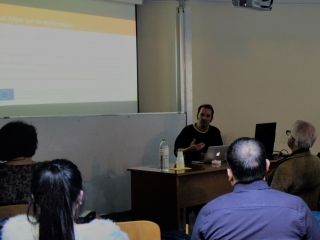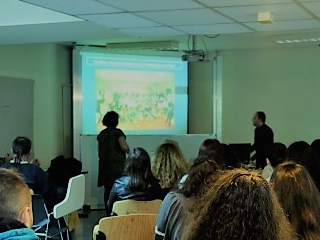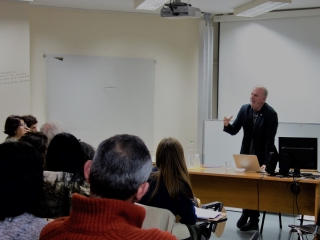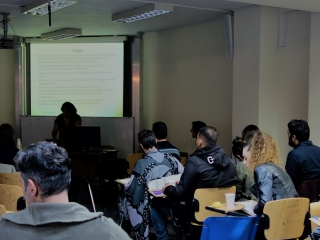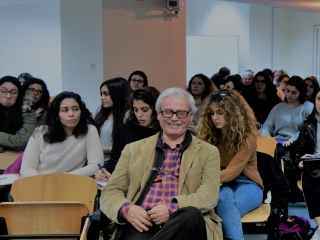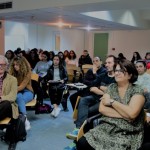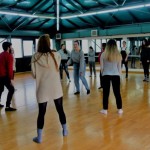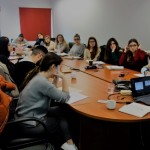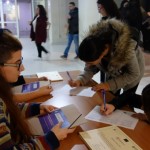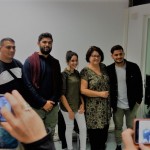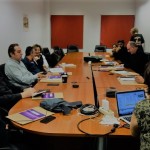Training of Police / Prison Officers
- Written by Franco Favilli
- Published in Police/Prison Officers
- Permalink
Methodological note
Each Workshop is planned preferring a training methodology that provides: (i) an introductory study for each of the approaches presented; (ii) a practical-interactive part to allow participants to familiarize themselves with the topics of the module through the use of active psycho-pedagogical methodologies that also include role-playing, focus groups, assessment centers and “collaborative games”, planned ad-hoc and salient for the specific type of participants (law enforcement agencies).
Module 1: Non-chosen cohabitations and intergroup relations: an introduction.
This module introduces an advanced social psychological approach to “cohabitation management”, to examine the processes related to the creation and maintenance of intergroup relations. Some of the most recent approaches to the subject is framed (eg realistic theory of conflicts, social representations, “influence of minorities”). Each theoretical field is studied in depth in a highly applicative form around a triadic point of view on “non-chosen cohabitations” and their “management”: historical, conceptual and empirical. Particular attention in this module is devoted to acculturation and related processes.
Module 2: Why intergroup relations become conflicting: identities “in action”.
In this module the most suitable approaches to understand the roots of the conflicts between the individual and the social is introduced. In particular, awareness processes is activated on which are the processes and dynamics through which people tend to identify with a group, yet developing negative attitudes and a behavioural, cognitive and emotional distance towards “external groups” (outgroups), such as Roma. Understanding and analysing how and why some inequalities between groups originate and are maintained in society, help understand those processes through which we see “the other” in terms of different “perspectives”: horizontal (ingroup-outgroup) and vertical (dominance-submission).
Module 3: From norms to prejudices, from prejudices to norms: how stereotypes are formed and maintained.
This module is dedicated to becoming aware of how prejudices and stereotypes are formed and maintained, often against our own will. In particular, the most studied types of prejudices (eg racism) and the explicit and less explicit (subtle) forms of these negative attitudes are highlighted. The theme of stereotypes is discussed in its cognitive origin (for example, becoming aware of how we use “shortcuts of thought”) helping understand the practical implications of behavioural and social type in managing cohabitation. The operational focus is on how stereotypes and prejudices can lead to particular and complex forms of discrimination against Roma.
Module 4: Towards a reduction of prejudices and stereotypes: what can we do.
In this module the methods of implementation and management of the interventions are deepened to reduce prejudices and stereotypes by introducing, among others, the methodologies related to the “contact theory” This methodological approach presupposes that structured experiences of profound social contacts with others they can contribute to developing positive attitudes and awareness towards cohabitations with ethnic minorities, so our behavior has the opportunity to change.
Module 5: From theory to practice and from practice to theory: how to implement interventions to reduce conflicts with ethical and cultural minorities.
In this module “practical” foundations of “research-action” interventions are introduced. Action research is a methodological approach that allows to build a set of new knowledge and awareness starting from the point of view of the “actors” participating in the protocol. This set of knowledge is an essential requirement to lead subsequently to the creation of specific interventions co-constructed with all the participants. On the basis of this methodology, defined as “contact hypothesis”, for example, it is possible to develop a more “positive and realistic” and less conflictual view of the members of the outgroups. Action research aims to produce spirits of empowerment among the groups involved, also producing awareness of good practices of “cohabitation” management, through a sharing of psychological spaces, shared experiences and cooperation for common goals.
